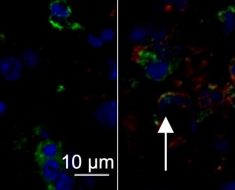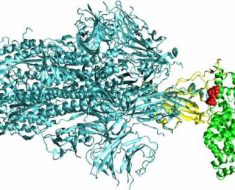
Patients with advanced kidney cancer are routinely given immune checkpoint inhibitors (ICIs) as first-line treatment. The CONTACT-03, phase 3 clinical trial tested the effects of giving ICIs again, as part of a standard second-line therapy.
It is the first trial of its kind to compare a standard therapy alone (cabozantinib) to standard therapy plus an ICI (atezolizumab plus cabozantinib) in solid tumors that have progressed after first-line therapy with an ICI. Patients taking atezolizumab plus cabozantinib did not experience longer progression free survival or overall survival compared with those taking cabozantinib alone.
An examination of subgroups of patients based on prior treatment regimens and risk groups showed no benefit of the addition to any group. Further, patients taking the combination therapy experienced higher levels of toxicity.
Immune checkpoint inhibitors such as those that block PD-1 and PD-L1 have revolutionized cancer therapy and become part of standard first-line therapy for many solid tumors, including for advanced kidney cancer. An emerging practice for these patients includes continuing or rechallenging with these drugs if the cancer progresses.
This study is the first to rigorously assess the safety and efficacy of that practice in a phase 3 randomized clinical trial. The results send a strong signal not to sequence PD-1/L1 inhibitors in these patients because it provides no clinical benefit and could introduce potential harm.
The paper is published in The Lancet journal.
More information:
Sumanta Kumar Pal et al, Atezolizumab plus cabozantinib versus cabozantinib monotherapy for patients with renal cell carcinoma after progression with previous immune checkpoint inhibitor treatment (CONTACT-03): a multicentre, randomised, open-label, phase 3 trial, The Lancet (2023). DOI: 10.1016/S0140-6736(23)00922-4
Journal information:
The Lancet
Source: Read Full Article





